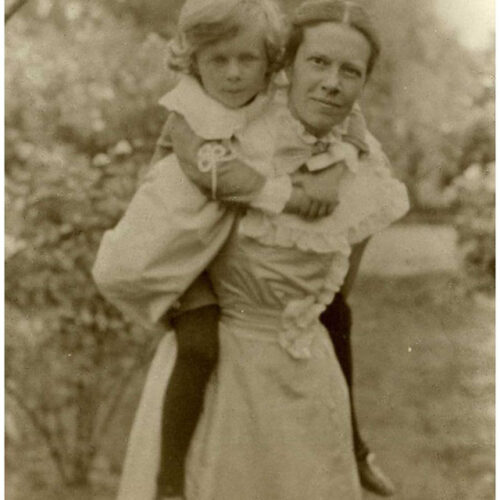

Julia Huxley was a feminist and freethinker, who profoundly influenced a generation of girls who attended the school she founded with her husband, Leonard Huxley. Unlike others who bore the Huxley name, the humanism of Julia Huxley has been comparatively underexplored. However, as evidenced in her life, works, and enduring compassion, she was a thoroughgoing humanist, who fostered many more.
Julia Huxley was born Julia Arnold, the daughter of Thomas Arnold, a literary scholar. Her family was liberal and educated (her grandfather was the noted headmaster of Rugby School, and her uncle essayist Matthew Arnold), and Julia was able to profit from the relatively new opportunities for women in higher education. She attended Oxford University as a home student on a scholarship, and went on to obtain first class honours in English literature from Somerville College in 1882.
Julia Arnold married Leonard Huxley in 1885, and they moved together to Surrey, where Leonard was teaching. Together they had four children, including the novelist Aldous Huxley and the biologist, internationalist, and humanist advocate Julian Huxley. In January 1902, the couple founded Prior’s Hill School, an experimental school for girls which was an enormous success. Known for her sense of humour, ambition, and intelligence, Huxley was a popular and inspiring headteacher. The daughters of Stanton and Adela Coit, leaders in the Ethical movement, attended the school, as did the prominent Canadian humanist Marian Sherman. Sherman would later write of Huxley’s influence in nurturing a tendency to freethought, which helped to offset a strictly religious upbringing:
She was a freethinker, though she was careful not to teach too many ideas that would upset. I was very fond of her and she planted seeds which germinated later.
The school offered an education which focused on cultivating the cultural appreciations of the girls, and nurturing their freedom. The writer Enid Bagnold recalled it as ‘above all a literary school’. Like other freethinking women of her generation, and many within the ethical societies, Huxley supported women’s suffrage, along with other efforts to loosen the constraints imposed by Edwardian society. The school’s progressive values reflected Huxley’s own, and fulfilled what she herself said she had always wanted to do.
Julia Huxley died from cancer at Prior’s Field on 29 November 1908, aged just 46. In a letter to her son, Aldous, written shortly before, she instructed him to ‘judge not too much and love more’.
Julia Huxley’s openness, compassion, and interest made her an excellent headteacher and a laudable humanist. As a school founder, she was able to directly influence the freethinking self-determination of a new generation of young women, imbuing her own progressive values into the curriculum and atmosphere of Prior’s Field.
Main image: Julia Huxley, founder and first headmistress of Prior’s Field, with her son Aldous. Prior’s Field Archive Online
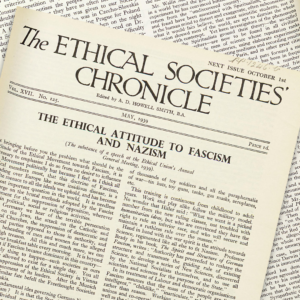
From The Ethical Societies’ Chronicle, Vol. XVII. No. 125. May 1939 The Ethical Attitude to Fascism and Nazism (The substance […]
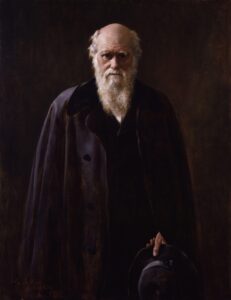
I cannot pretend to throw the least light on such abstruse problems. The mystery of the beginning of all things […]
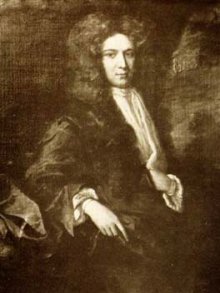
Is being rewarded for maintaining certain articles as matters of faith, and being punished, or suffering for opposing them, proper […]
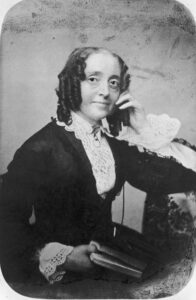
Emancipation from every kind of bondage is my principle. I go for the recognition of human rights, without distinction of […]